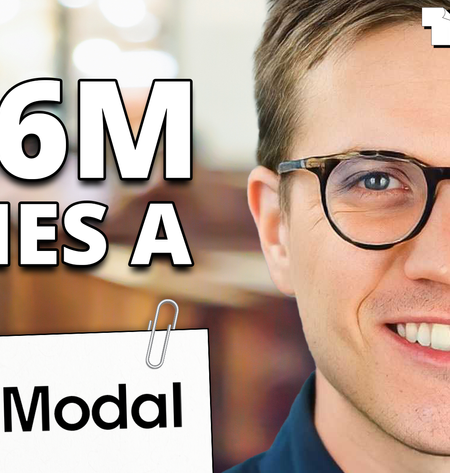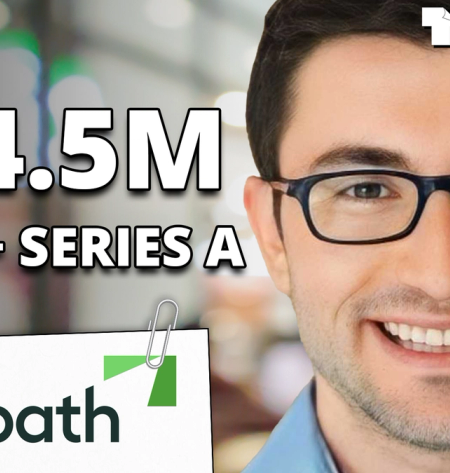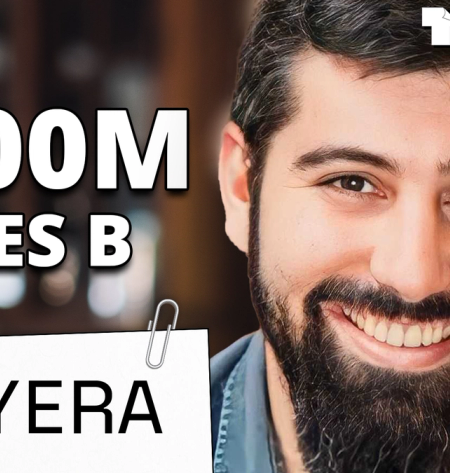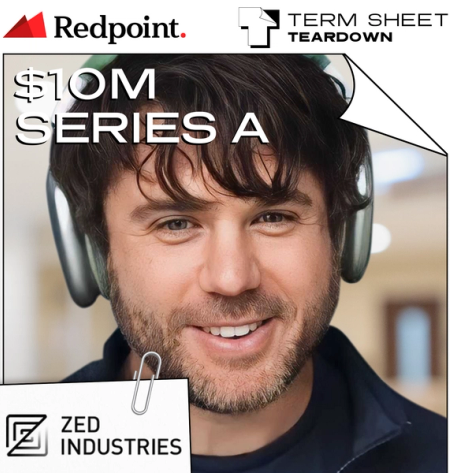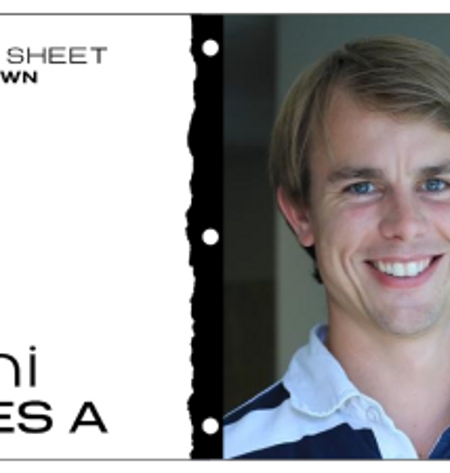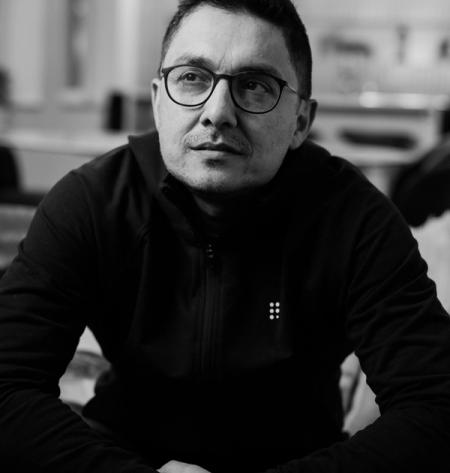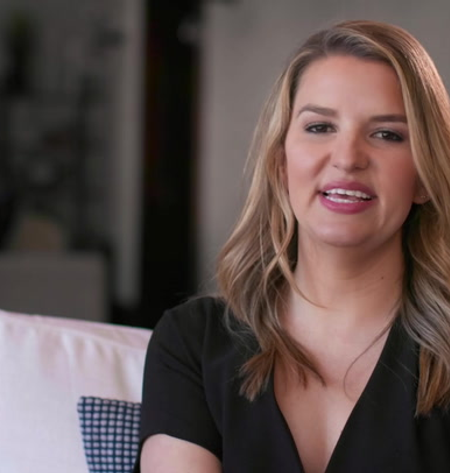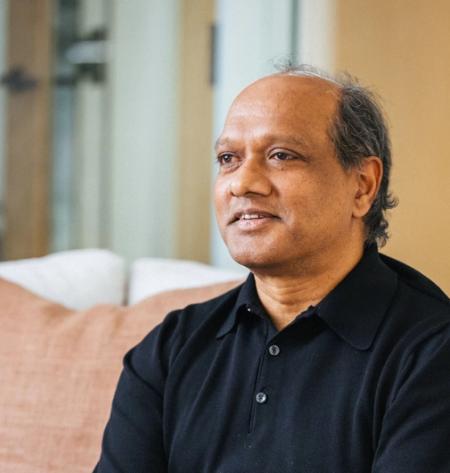Building an Open Source Business
EPISODES
Video Transcript
00:00:00 (calm music)
00:00:03 Solomon: Hi, I'm Solomon Hykes. I'm the co-founder and CEO of Dagger, and today we're going to talk about starting a company in the DevOps Space. I've co-founded a few companies of that space, including Docker, so we're going to talk a little bit about that experience and ways to be successful. This is founder confidential.
00:00:19 (calm music)
00:00:27 Solomon: Dagger is a development kit for CI/CD pipelines. It makes it very easy to develop pipelines that automates the delivery of applications to the Cloud. I became an entrepreneur about 10 years ago and I was just obsessed with this idea with this specific technology, and I just couldn't stop thinking about it. Eventually, I just started my own company to work on that technology and that technology was containers and it eventually became an important part of the tech industry. To me, the startup was the vehicle to keep working on something I just was obsessed with. (chuckling) That's how it started. In terms of how mature the idea and the products were when I quit my job to pursue it, there was nothing. (laughing) There was nothing at all! My strategy was basically jump and build the plane while you're falling. If you have the luxury of just going for it and taking a big risk, you know, you should do it.
00:01:29 (calm music)
00:01:31 Solomon: My approach to creating a successful startup from scratch. The only thing that matters is finding a problem that you solve for a specific group of people better than anything else. That's really it. Once you do that, then everything else kind of falls into place. Until you do that, everything's really hard. It took me a long time to know that it was going to be successful, but it was a gradual process. You follow your intuition, you build something, you try to get people to use it, they don't use it, but they give you an idea for something that's almost the same so you try that, and you just iterate and you iterate and you iterate. And the faster you can iterate, the faster you can complete a loop of trying something new, getting it in the hands of someone, and getting feedback so you can try again, the faster you'll get to that magical moment where everything changes because now you're not pushing your solution, now it's people are pulling for it because they have a problem and you solve that problem and they can't get enough of your solution. If you're lucky, then you've been your customer so you have firsthand experience of what they need. If you've been the customer, then you have an advantage, but you can't have firsthand experience of everything, so eventually you need to rely on the experience of others and that informs the team that you're going to build, right?
00:03:07 Solomon: You want to bring in a certain set of experience, plus the ability to share that and communicate it with the rest of the team. You can have the best expert in the world. If they can't share that experience with the rest of the team and turn it into insights for the product, then they're not the right hire. So it's a delicate balance. Choosing co-founders is it definitely is kind of like getting married. It's one of the most important decisions you'll make. After a while you kind of move as one. What we're trying to do is build a culture that allows the rest of the team to have that too. You know, a team of 10, it's 10 of us today, that trusts each other completely and knows each other so well, it feels like they move as one. That's the most powerful thing in the world for a company. If you're starting a project, a company in DevOps today, I would say think very carefully about your niche, your entry points. It used to be that DevOps was the niche, but now DevOps has turned into Cloud Native and Cloud Engineering. It's mainstream now. And when things become mainstream, they become harder for new startups to enter because it's more expensive to market yourself. It's more expensive to build the first version of the product because the expectations are higher. You can't rely on just being in DevOps as the niche. You got to find the niche within DevOps in some way. Our niche is CI/CD, which is one specific aspect of DevOps, right? Continuous integration, continuous deployment. It's the codes that runs every time you change your code. So it's the codes that takes your code online. (chuckling) It's the robot that builds the robot. That is the problem we're solving.
00:05:06 Solomon: And what we're doing better than everyone else is the developer experience. The experience of creating those pipelines and improving them and testing them, we just have better tools. So we give you, the creator of those pipelines, a better experience. So that's a slice of a slice of the DevOps market. Our current focus on that specific slice and the specific way we approached the problem, all of that was given to us. Our users thought of it. We started with something else, we found people to test it, and the feedback, as usual was, well, this 90% of it I don't care about, this 10% it could be something. If you're smart, you listen and you take notes, and then you find 10 more people like them, and once you see a pattern, you say, okay, the words they're using to describe their problem that we can solve. That's our niche now.
00:06:01 (calm music)
00:06:05 Solomon: Our strategy specifically for building a successful business is to start by building a successful developer community. So in our case, first, we solve a problem for engineers. That gives us the opportunity to solve a related problem for their employers. And the first part we do for free, not only for free, we do it open source, which means we're billing it together with those engineers, and the second part is a product that you pay for, but it's a staged approach. There's two aspects to open source, right? There's the business aspect that it can lead to greater adoption of a commercial product. You know, it's sort of a way in. And then there's the community aspect, which is that when it's open source, more people can participate without having to work at your company. That draws people in. Open source is how we build a community and community is how we build a brand and an opportunity to sell something to the employers behind the individuals in the community. In our case, we just integrate the two. It's a business strategy and it's a marketing and product strategy.
00:07:18 (calm music)
00:07:20 Solomon: My day to day as a founder has changed a lot between the first and the second startup. The first startup I was young, single, worked nights, weekends. Now I'm married, I have two kids, I work nine to five, I don't work on weekends. And my attitude is I won in easy mode, now I'm going to win in hard mode and I'm still going to win. It's kind of an additional challenge to succeed building a startup while also having a balanced life.
00:07:52 Solomon: That to me is actually a big deal. And I realize now that I'm a better founder. I'm more organized and I have to prioritize, so I'm better at prioritizing. In my experience, most of the time, you know what the boundaries should be. It's more like whether you feel empowered to set them up, you know, are you supported in that or are you not? Being a good leader at a startup is hard because a startup changes a lot 'cause it grows so fast, so you have to reinvent yourself as a leader as the company reinvents itself. And it's really hard because you're always wondering am I the right person for this next phase or not? You know, and you got to be confident. You made it this far, but you kind of have to still reassess, you know, and for sure if you're the right person, then you got a lot of learning and growing to do because the company's learning and growing. So you got to do it too. I want to be led by people who are introspective and they want to improve to serve the group better, and so I want to do that too. Teams always love being led by people who care about them and actually invest in them. Everybody says that these days, oh our biggest assets are the people, blah, blah, blah. But are you actually doing it? You know, that's another story. So, actions speak louder than words.
00:09:13 (calm music)

